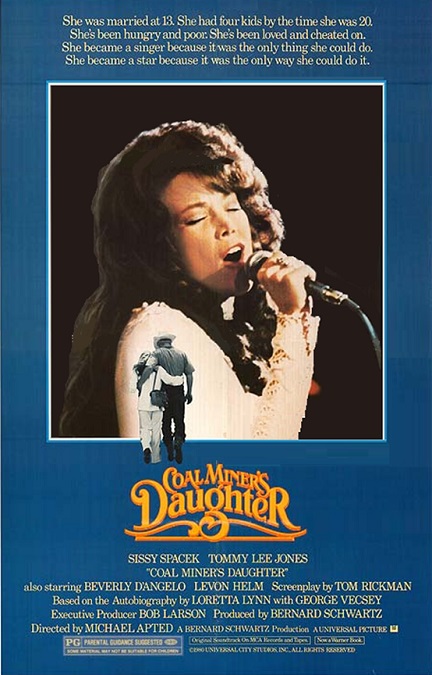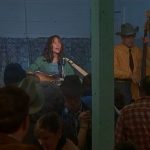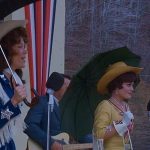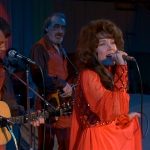
Coal Miner’s Daughter – 1980
I have to start off by saying that I am not a country music fan. More than that, one of my least liked forms of country music is honky-tonk, simply because it is characteristically incredibly twangy. I’m not saying it is bad music, just that it isn’t my personal preference. That being said, Coal Miner’s Daughter is all about the famous Country superstar, Loretta Lynn. In fact, the film is based on her autobiography, and apparently follows her life very closely and accurately, this from the singer’s own lips.
But did I dislike the movie? No, I didn’t. I can respect it for a film that was well-made and entertaining, even though the subject matter was pretty foreign to me. Sissy Spacek, who played the lead as Loretta Lynn, did a fantastic job, earning herself the Oscar for Best Actress. Tommy Lee Jones did a fine job as well, dying his hair orange to play the role of Loretta’s husband, Doolittle Lynn. The film followed Loretta’s life from 1945 to 1969, the formative years of her singing career.
She starts off in a back-woods, hillbilly mining community, known as Butcher Hollow, Kentucky, as a 13 year-old Loretta Webb meets, falls in love with, and marries Doolittle Lynn. He turns out to be an alcoholic who mistreats and abuses her, then throws her out on the street after getting her pregnant. Then he moves away to Custer, Washington to find work.
At this point, I hated his character and couldn’t understand why she would ever go back to him. But she does, and when he sends her money so she can join him, she goes. The couple had 4 kids by the time Loretta was 19 years old. Then, because he likes hearing Loretta sing, he forces her to sing at a honky-tonk bar. Again, I didn’t like his character because he was making her do something she didn’t want to do, simply to please himself.
But apparently, he did the right thing. She took to being on stage like a fish to water. She ended up loving it, and she obviously had the talent. The time was right and everyone who heard her sing loved her voice. But then, as Loretta’s manager, “Doo” seemed to do a bit of a turn-around. He actually started to treat her well, when he was not drinking and womanizing. He asked her if she wanted to pursue a singing career and worked incredibly hard to help her get what she wanted.
But the film also pulled no punches as it followed Loretta’s career and personal life. She became so famous so quickly that she didn’t seem to be ready for the incredible pressures that the life of a superstar entails. According to the film, she drove herself so hard that she ended up having a nervous breakdown on-stage in front of thousands of shocked fans. She took a year off from singing, spending time on her ranch with her husband and children. The film ends as she returns to the stage, happy and healthy, singing the song that became her signature song, Coal Miner’s Daughter.
The movie also chronicles Loretta’s close, personal friendship with her idol, Patsy Cline, played by Beverly D’Angelo. I liked D’Angelo and thought she did a great job, though again, I have never listened to Patsy Cline’s music or followed her career, so I don’t know how accurate her performance was.
To say that Spacek really embodied the soul and spirit of the real Loretta Lynn is an understatement. First, I was sincerely impressed to learn that she did all her own singing in the film. I watched an interview with the real Loretta Lynn that was incredibly informative. She said that in preparation for the role, Sissy followed her around for a year, imitating her and getting the sound and mannerisms just right. Then, she went into the recording studio and recorded all the songs for the movie so accurately, that fans had difficulty telling the difference between the singer and the actress.
And I’d also like to mention what Loretta said about Tommy Lee Jones’ performance in the film. She said that she was shocked that he was not recognized for his work because he did such an incredible job as Doolittle. Though I didn’t like his character at the beginning, I ended up liking him by the end, thanks to Jones.








